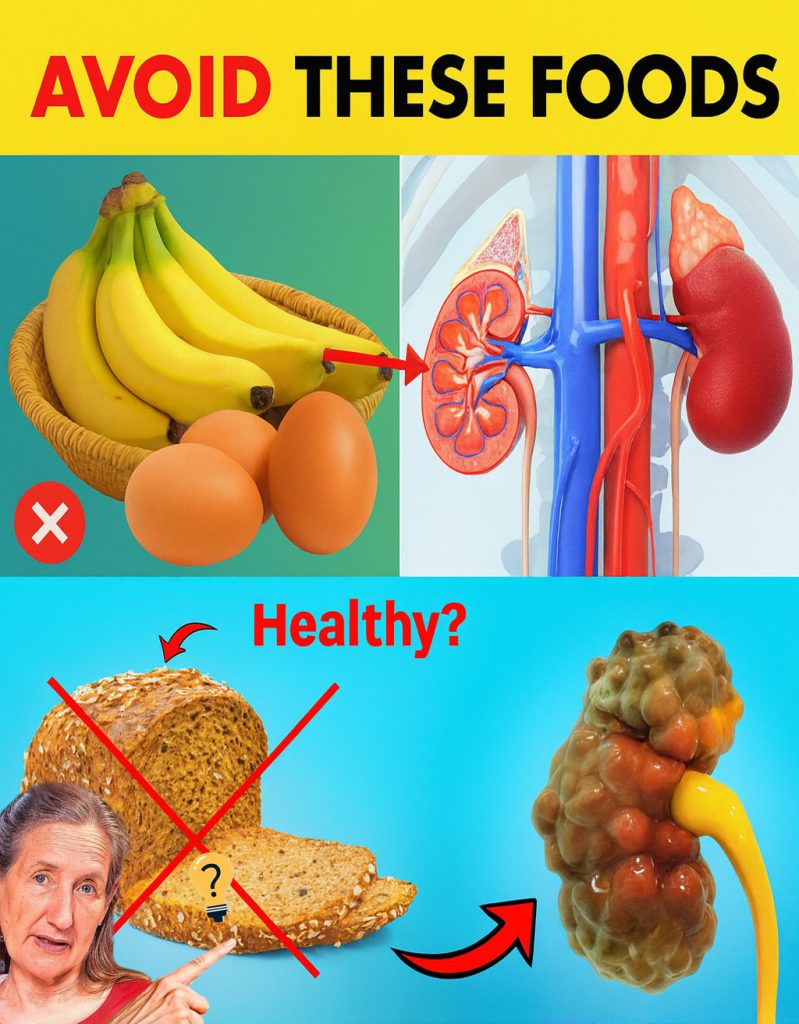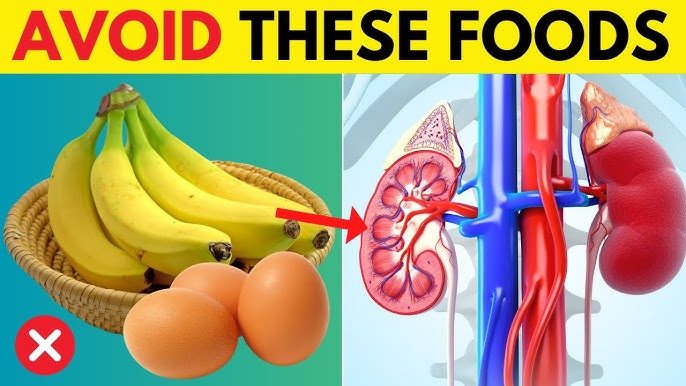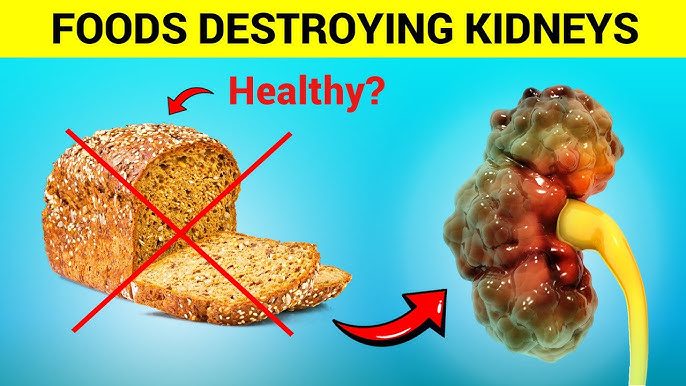If you have Chronic Kidney Disease (CKD) or other serious kidney issues, certain nutrients that healthy kidneys filter easily can build up in your blood and become toxic. Therefore, restricting the intake of Sodium, Potassium, and Phosphorus is crucial for managing kidney health and slowing disease progression.

Please note: This is general information. Always consult your doctor and a Registered Renal Dietitian (RD) to create a personalized diet plan based on your specific stage of kidney disease and current blood test results.
The 12 Foods to Strictly Limit or Avoid
The following foods are often restricted due to their high content of the three main minerals that the kidneys struggle to excrete:

| # | Food Category | Key Problem Mineral(s) | Why It Harms Unhealthy Kidneys |
| 1 | Dark-Colored Sodas (Cola) | Phosphorus (as additives) | Contains high levels of inorganic phosphate additives (e.g., phosphoric acid) that are almost completely absorbed by the body, leading to bone weakness and potential blood vessel damage. |
| 2 | Processed Meats (Hot Dogs, Bacon, Deli Meats) | Sodium, Phosphorus, Protein | High in salt (sodium) which raises blood pressure and fluid retention, and often contain phosphate additives. Excess protein increases the kidneys’ workload. |
| 3 | Canned Soups & Vegetables | Sodium | Canned and instant foods are notoriously high in sodium, added for preservation, which elevates blood pressure and strains the kidneys. |
| 4 | Avocados | Potassium | Highly concentrated in potassium. High blood potassium (hyperkalemia) can lead to dangerous, life-threatening heart rhythm problems. |
| 5 | Bananas | Potassium | A classic high-potassium fruit that is frequently restricted on a renal diet to maintain safe blood potassium levels. |
| 6 | Dairy Products (Milk, Cheese, Yogurt) | Phosphorus, Potassium, Protein | High in all three restricted nutrients. Excess phosphorus pulls calcium from bones and can damage blood vessels. |
| 7 | Oranges & Orange Juice | Potassium | High in potassium. Low-potassium fruit juices like cranberry, apple, or grape juice are often preferred. |
| 8 | Potatoes & Sweet Potatoes | Potassium, Phosphorus | Very high sources of potassium. If consumed, they require special preparation (leaching or double-boiling) to reduce potassium content. |
| 9 | Tomatoes & Tomato Products (Paste, Sauce, Juice) | Potassium | Concentrated sources of potassium. Even small servings of tomato paste or sauce must be strictly controlled. |
| 10 | Dried Fruits (Raisins, Prunes, Dates) | Potassium | Drying concentrates all nutrients, making the potassium levels extremely high and dangerous for compromised kidneys. |
| 11 | Whole Wheat Bread/Brown Rice | Phosphorus, Potassium | While healthy for others, the phosphorus and potassium content in whole grains is higher than in white rice, white bread, and refined cereals, which are often better choices on a renal diet. |
| 12 | Salt Substitutes (e.g., Lo-Salt) | Potassium (as Potassium Chloride) | Most salt substitutes replace sodium chloride with potassium chloride, which is extremely dangerous and must be avoided unless specifically approved by a doctor. |
Key Nutritional Targets for Unhealthy Kidneys

| Nutrient to Control | Why it Must be Controlled | Renal-Friendly Alternatives (Examples) |
| Sodium (Salt) | Leads to high blood pressure (hypertension) and fluid buildup (edema). | Season with herbs, spices, lemon juice, garlic, onion powder; eat fresh, homemade foods. |
| Potassium | Too much can cause hyperkalemia, leading to life-threatening heart arrhythmias. | Apples, berries (strawberries, blueberries), cabbage, cauliflower, carrots, white rice. |
| Phosphorus | Weakens bones (by leaching calcium) and causes crystal deposits in blood vessels, heart, and joints. | Fresh fruits and vegetables; light-colored sodas; rice milk (unenriched); white bread. |









